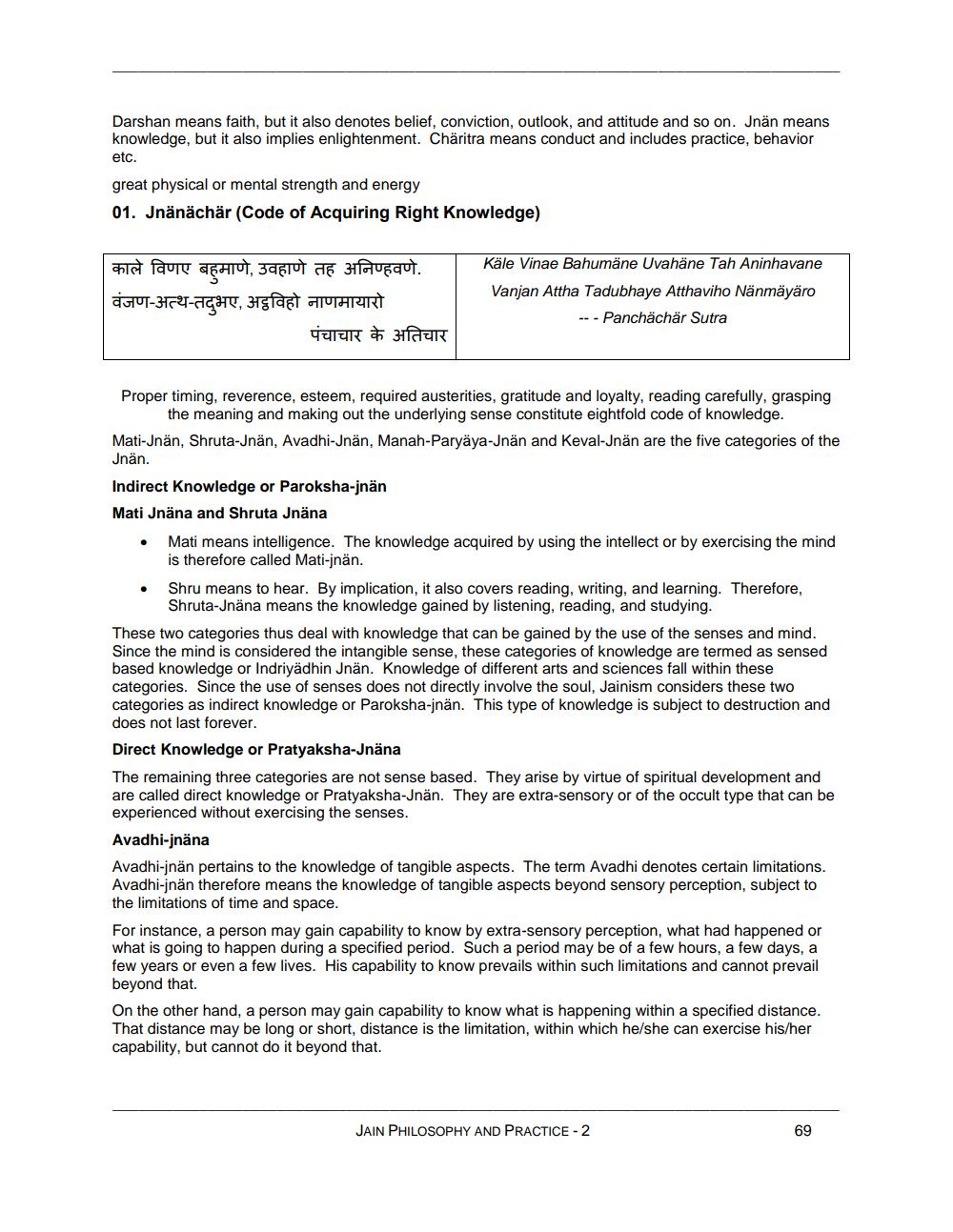________________
Darshan means faith, but it also denotes belief, conviction, outlook, and attitude and so on. Jnän means knowledge, but it also implies enlightenment. Chäritra means conduct and includes practice, behavior etc.
great physical or mental strength and energy
01. Jnänächär (Code of Acquiring Right Knowledge)
काले विणए बहुमाणे, उवहाणे तह अनिण्हवणे. वंजण-अत्थ-तदुभए, अट्ठविहो नाणमायारो पंचाचार के अतिचार
Käle Vinae Bahumäne Uvahäne Tah Aninhavane Vanjan Attha Tadubhaye Atthaviho Nänmäyäro --- Panchächär Sutra
Proper timing, reverence, esteem, required austerities, gratitude and loyalty, reading carefully, grasping the meaning and making out the underlying sense constitute eightfold code of knowledge. Mati-Jnän, Shruta-Jnän, Avadhi-Jnän, Manah-Paryaya-Jnän and Keval-Jnän are the five categories of the Jnän.
Indirect Knowledge or Paroksha-jnän
Mati Jnäna and Shruta Jnäna
⚫ Mati means intelligence. The knowledge acquired by using the intellect or by exercising the mind is therefore called Mati-jnän.
Shru means to hear. By implication, it also covers reading, writing, and learning. Therefore, Shruta-Jnäna means the knowledge gained by listening, reading, and studying.
These two categories thus deal with knowledge that can be gained by the use of the senses and mind. Since the mind is considered the intangible sense, these categories of knowledge are termed as sensed based knowledge or Indriyädhin Jnän. Knowledge of different arts and sciences fall within these categories. Since the use of senses does not directly involve the soul, Jainism considers these two categories as indirect knowledge or Paroksha-jnän. This type of knowledge is subject to destruction and does not last forever.
Direct Knowledge or Pratyaksha-Jnäna
The remaining three categories are not sense based. They arise by virtue of spiritual development and are called direct knowledge or Pratyaksha-Jnän. They are extra-sensory or of the occult type that can be experienced without exercising the senses.
Avadhi-jnäna
Avadhi-jnän pertains to the knowledge of tangible aspects. The term Avadhi denotes certain limitations. Avadhi-jnän therefore means the knowledge of tangible aspects beyond sensory perception, subject to the limitations of time and space.
For instance, a person may gain capability to know by extra-sensory perception, what had happened or what is going to happen during a specified period. Such a period may be of a few hours, a few days, a few years or even a few lives. His capability to know prevails within such limitations and cannot prevail beyond that.
On the other hand, a person may gain capability to know what is happening within a specified distance. That distance may be long or short, distance is the limitation, within which he/she can exercise his/her capability, but cannot do it beyond that.
JAIN PHILOSOPHY AND PRACTICE - 2
69




